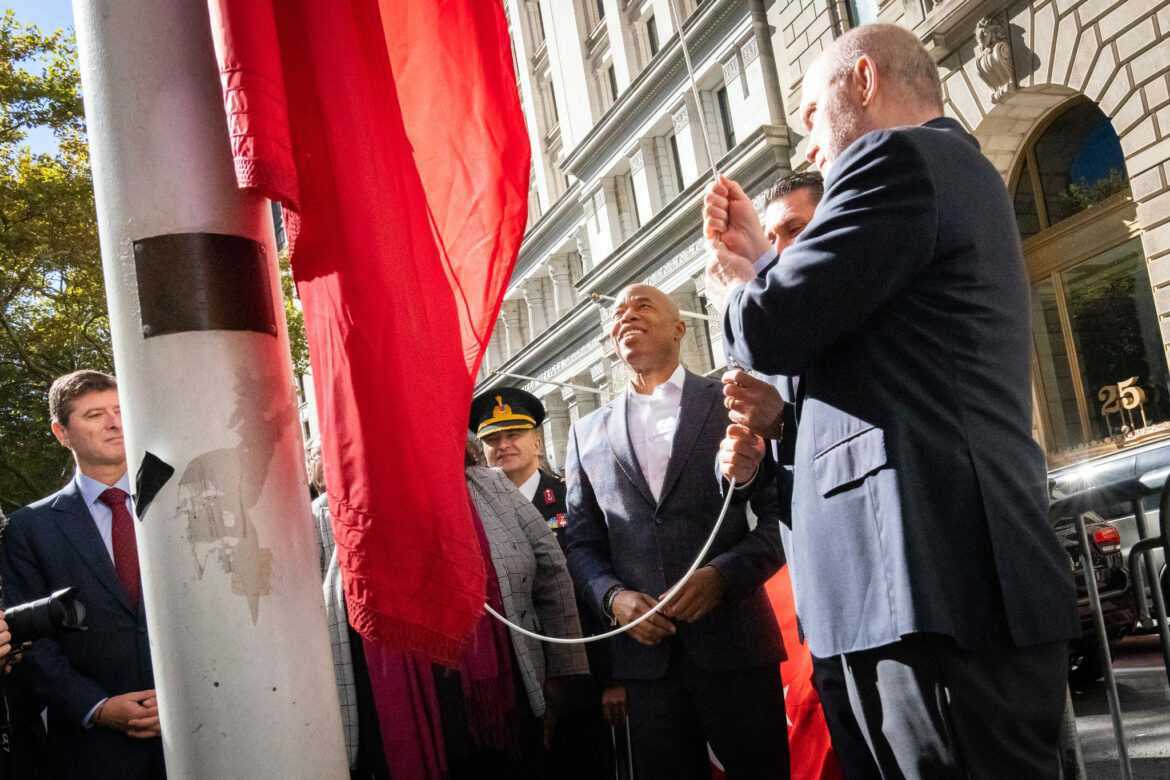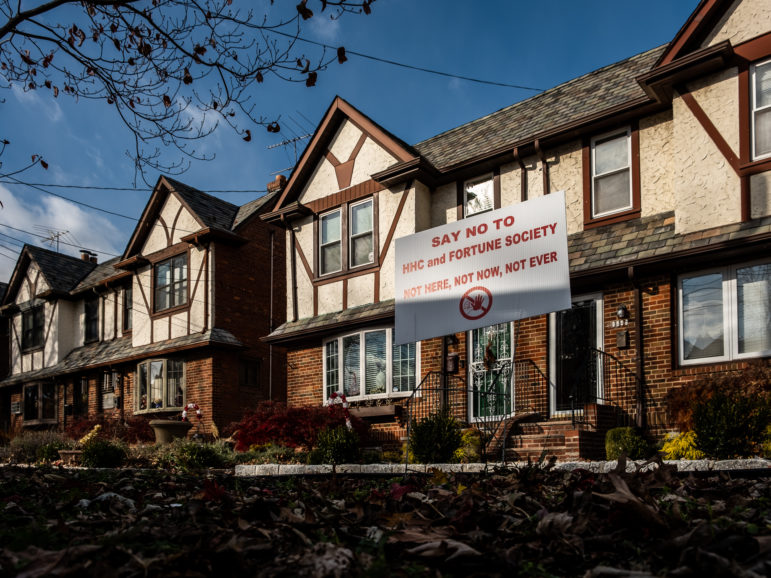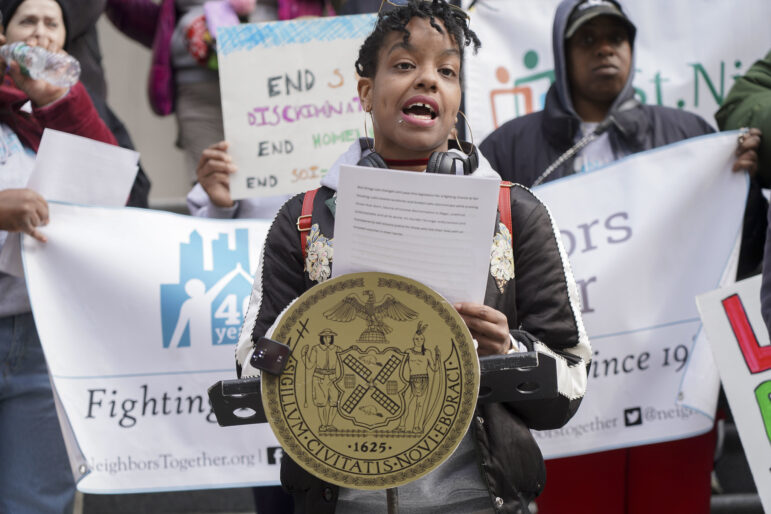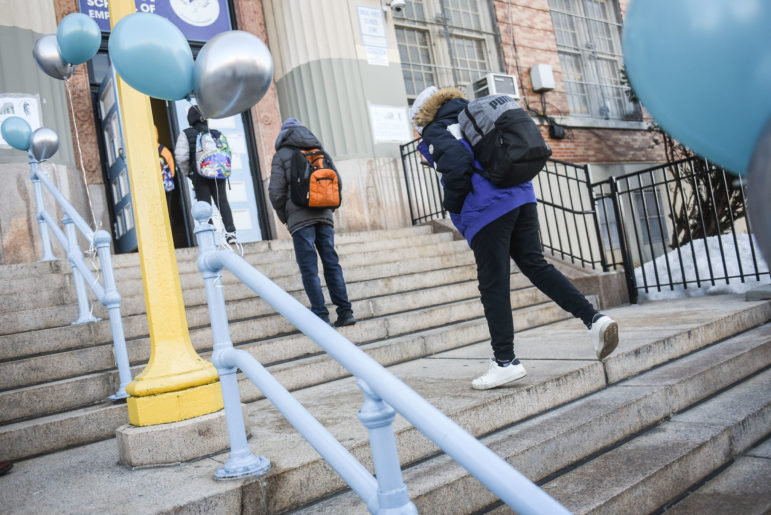“Vexed by scandal and hemmed in by the mayor’s focus on style over substance, the office is missing opportunities to advance the city through global partnerships and is in desperate need of revitalization.”

Ed Reed/Mayoral Photography Office
Mayor Eric Adams delivers remarks at the Turkish flag raising ceremony in Manhattan on Oct. 29, 2022.A year ago, Mayor Eric Adams raised the Turkish flag over lower Manhattan and proudly declared that “New York City is the Istanbul of America.” During his term, the mayor has presided over more flag-raisings than any recent predecessor, ostensibly to tout our city’s deep international ties. These events are more ward politics than international diplomacy, geared towards earning votes more than fostering global connection.
Ed Mermelstein, commissioner of the scandal-plagued Mayor’s Office for International Affairs, is a common sight at these spectacles. His office is tasked with “cultivating critical partnerships with the international community.” Unfortunately, the office is currently better known for its proximity to the mayor’s recent indictment via former director of protocol, Rana Abbasova, who allegedly has been involved in illicit campaign activities. Vexed by scandal and hemmed in by the mayor’s focus on style over substance, the office is missing opportunities to advance the city through global partnerships and is in desperate need of revitalization.
Since the United Nations was built on the east side of Manhattan, New York City has had a critical and growing role in international affairs. The city is home to almost 3 million New Yorkers born abroad, serves as a global financial hub, and hosts one of the largest, highest-profile annual diplomatic meetings.
Former mayors have recognized how essential it is for our city to engage with the rest of the world. Under Bill de Blasio, New York was “the first city in the world to adopt… the Paris Climate Agreement.” Michael Bloomberg established an innovative partnership with London focused on policy exchange. Our mayors, from Robert Wagner to David Dinkins, have frequently looked overseas for help tackling some of the city’s greatest challenges.
Around the world, cities smaller and less interconnected than New York have pivoted to work with global partners to address challenges as varied as climate change, economic development, and migration. In recognition of the expanding role of municipal diplomacy, the United States appointed its first-ever Special Representative for City and State Diplomacy in 2023. Despite that, over the last few years, New York City has failed to lead the way.
To uphold our status as a global city, the Mayor’s Office for International Affairs must shed its association with dysfunction and do more to steward New York’s interests abroad. First, the office should initiate a greater number of partnerships aimed at tackling key international challenges from climate, to migration, to public safety. This will be especially crucial if the country re-elects Donald Trump. In the absence of federal leadership, New York must build coalitions with cities that have a shared interest in tackling supranational issues and voluntarily agree to uphold key commitments.
Cities are also the new laboratories of democracy. New York City must bring the world’s most innovative municipalities together to share ideas. The Mayor’s Office for International Affairs should partner with relevant agencies to assess how the city can embrace innovative policies and share its own successes with others.
The office can also provide a bully pulpit to New York’s diasporic communities concerned with current affairs outside the United States. Many New Yorkers have a personal stake in ongoing world events. Despite that, the office has stayed largely silent on ongoing crises in Haiti and Sudan, which impact a great number of families in New York City. The Mayor’s Office for International Affairs should provide a platform for advocacy and amplify New Yorker’s calls to action.
Finally, the office must also establish clear metrics and commit to transparency by publishing its progress. The public should be able to judge their goals and assess their success just like they can for the agencies that are reviewed in the Mayor’s Management Report.
As the country’s preeminent global metropolis, New York City must engage in municipal diplomacy. To do that, the Mayor’s Office for International Affairs must reform and expand its work. It must build coalitions to tackle key issues, bring cities together to share innovative policies, amplify diasporic voices, and commit to transparent metrics.
If it can reform, the office will no longer merely be known for how many flags it raises, but for what it does to actively improve the lives of New Yorkers.
Emmitt Sklar serves as the executive director of Up Next NY. Previously, he held positions with the NYC Council and the Office of the Public Advocate.








